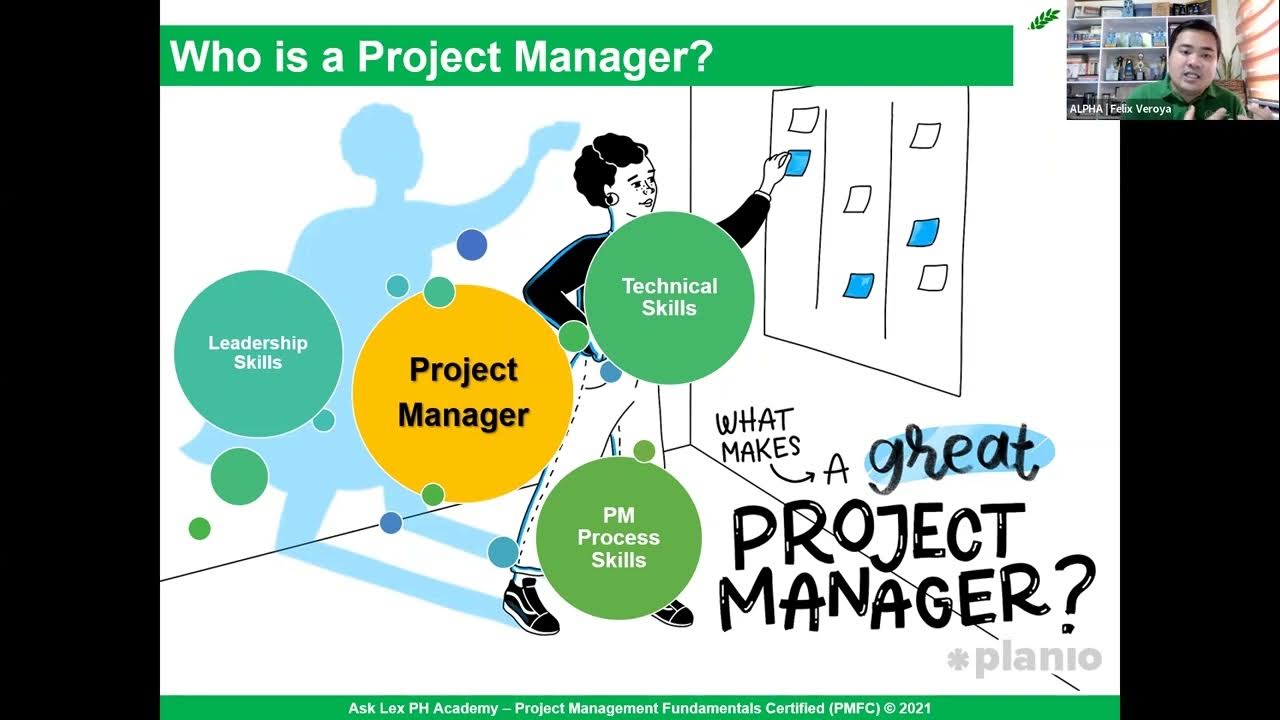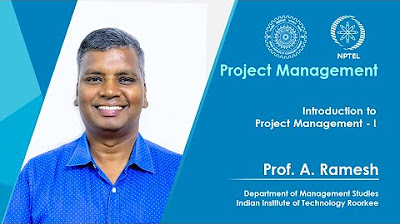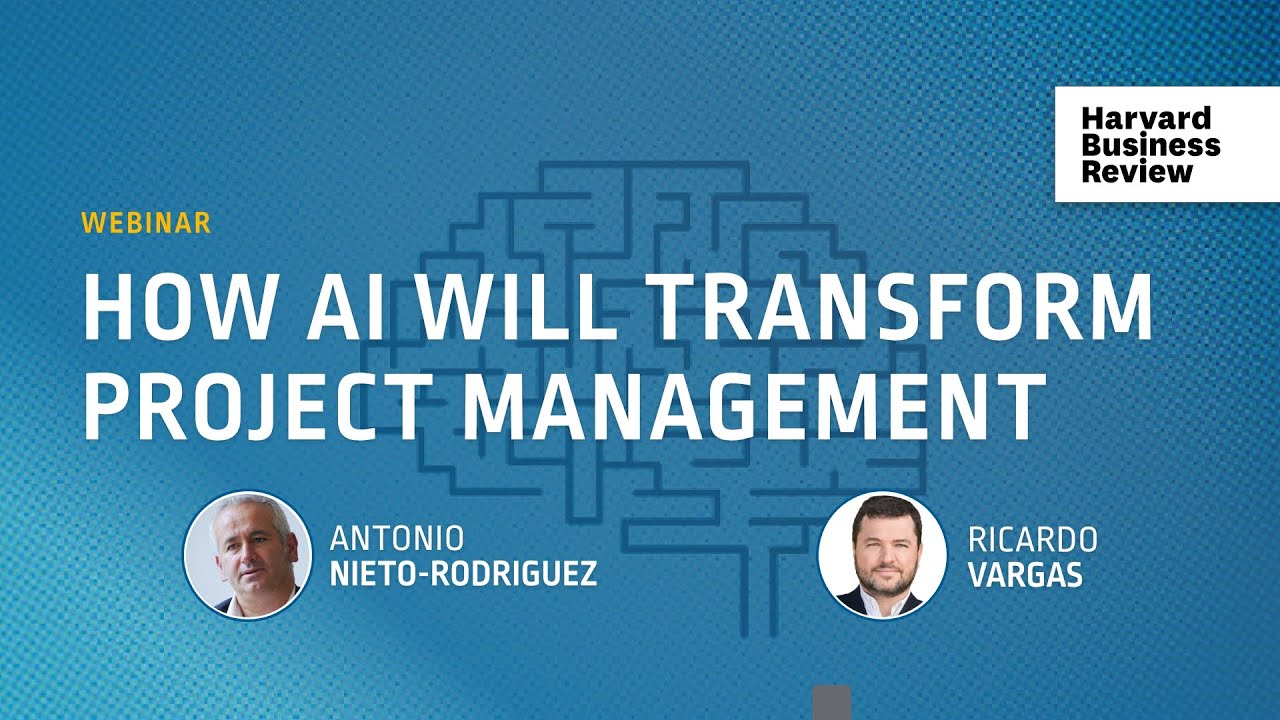Must-Have Skills For Agile Project Managers
Summary
TLDRIn this webinar, the speaker explores the shift in the project manager's role within an agile environment. Traditional project management focuses on detailed planning and control, but agile emphasizes adaptability and self-organization. The speaker highlights the importance of soft skills such as issue resolution, problem-solving, team-building, coaching, and change management for agile project managers. These skills are crucial for facilitating, coaching, and adapting to the dynamic nature of agile projects, rather than the rigid planning and micromanagement of traditional methodologies.
Takeaways
- 😀 The role of a project manager in an agile environment differs significantly from traditional project management, focusing more on facilitation than detailed planning and micromanagement.
- 🤔 Agile project managers need to be adept at networking and negotiation to resolve issues that the development team cannot handle on their own.
- 👥 Problem-solving in agile involves guiding the team to find their own solutions rather than providing all the answers, using strategies like creative questioning and brainstorming.
- 🏗️ Team-building is crucial for agile project managers to foster a collaborative and accountable team environment, which includes understanding and nurturing team dynamics.
- 👨🏫 Coaching is a key skill for agile project managers, helping team members adapt to agile practices and promoting a growth mindset within the organization.
- 🔍 Listening skills are paramount for agile project managers, especially when coaching for growth mindsets, requiring active listening and understanding non-verbal cues.
- 🛠️ Change management is a significant part of an agile project manager's role, as they help facilitate deep-rooted cultural and organizational changes to fully embrace agile principles.
- 📈 Agile project managers are responsible for creating a productive environment, which includes supporting individuals, promoting good relationships, and removing impediments.
- 📊 The agile manifesto values responding to change over following a plan, which means less emphasis on detailed project planning and more on adapting to changes.
- 🌟 The agile project manager's role may evolve into a Scrum Master, focusing on supporting the team and ensuring the right environment and support for motivated individuals.
Q & A
What is the main difference between the traditional project manager role and the agile project manager role?
-The traditional project manager role emphasizes detailed planning, organizing, and managing resources and tasks, whereas the agile project manager role focuses more on facilitation, coaching, and change management, with less emphasis on micromanagement and detailed planning.
Why are soft skills important for an agile project manager?
-Soft skills are crucial for agile project managers because they help facilitate, coach, and manage change within the team and the organization, which are key aspects of the agile methodology that go beyond technical or hard skills.
How does the agile manifesto influence the role of a project manager in an agile environment?
-The agile manifesto influences the project manager role by valuing individuals and interactions over processes and tools, and responding to change over following a plan, leading to a shift from detailed planning and control to adaptability and collaboration.
What are some of the soft skills that an agile project manager should develop?
-An agile project manager should develop soft skills such as networking, negotiation, active listening, empathy, problem-solving, team-building, coaching, and change management.
How does the agile project manager facilitate issue resolution and escalation?
-The agile project manager facilitates issue resolution and escalation by identifying and removing impediments that the development team cannot control, using their networking and negotiation skills to resolve issues and disputes within the organization.
What is the role of the agile project manager in problem-solving within the team?
-The agile project manager's role in problem-solving is to help the team find their own solutions by employing various strategies such as creative questioning, brainstorming, and root cause analysis, rather than providing all the answers themselves.
Why is team-building important in an agile environment?
-Team-building is important in an agile environment because it fosters a collaborative and accountable team culture where members support each other, communicate freely, and create a safe environment for asking questions and seeking help.
How does coaching contribute to the agile project manager's role?
-Coaching contributes to the agile project manager's role by helping team members understand and adopt agile practices, promoting a growth mindset, and facilitating the transformation of fixed mindsets into ones that embrace challenges and continuous improvement.
What is the significance of change management in the agile project manager's responsibilities?
-Change management is significant in the agile project manager's responsibilities as it involves facilitating deep-rooted changes in organizational culture, values, and principles to fully realize the benefits of agile and ensure that agile practices are embraced throughout the organization.
How does the agile project manager ensure a productive environment for the team?
-The agile project manager ensures a productive environment by using soft skills to support and empower individuals, promote good relationships, create a safe space for questions and help requests, and remove roadblocks that hinder the team's progress.
What does the agile principle of building projects around motivated individuals entail for the project manager?
-The agile principle of building projects around motivated individuals entails that the project manager should create an environment and provide support that enables team members to perform at their best, which includes fostering a culture of empowerment, collaboration, and continuous improvement.
Outlines

Этот раздел доступен только подписчикам платных тарифов. Пожалуйста, перейдите на платный тариф для доступа.
Перейти на платный тарифMindmap

Этот раздел доступен только подписчикам платных тарифов. Пожалуйста, перейдите на платный тариф для доступа.
Перейти на платный тарифKeywords

Этот раздел доступен только подписчикам платных тарифов. Пожалуйста, перейдите на платный тариф для доступа.
Перейти на платный тарифHighlights

Этот раздел доступен только подписчикам платных тарифов. Пожалуйста, перейдите на платный тариф для доступа.
Перейти на платный тарифTranscripts

Этот раздел доступен только подписчикам платных тарифов. Пожалуйста, перейдите на платный тариф для доступа.
Перейти на платный тарифПосмотреть больше похожих видео

Who is a project manager_rev1

Agile business transformation: what it takes to succeed | Joe Justice | TEDxSeattleSalon

O que é Gestão Ágil de Projetos? #Scrum #Kanban #Agile #Sprint

Lecture 01: Introduction to Project Management - I

Artificial Intelligence in Project Management Webinar Ricardo Vargas and Antonio Nieto-Rodrigues

Project Integration Management Overview
5.0 / 5 (0 votes)
